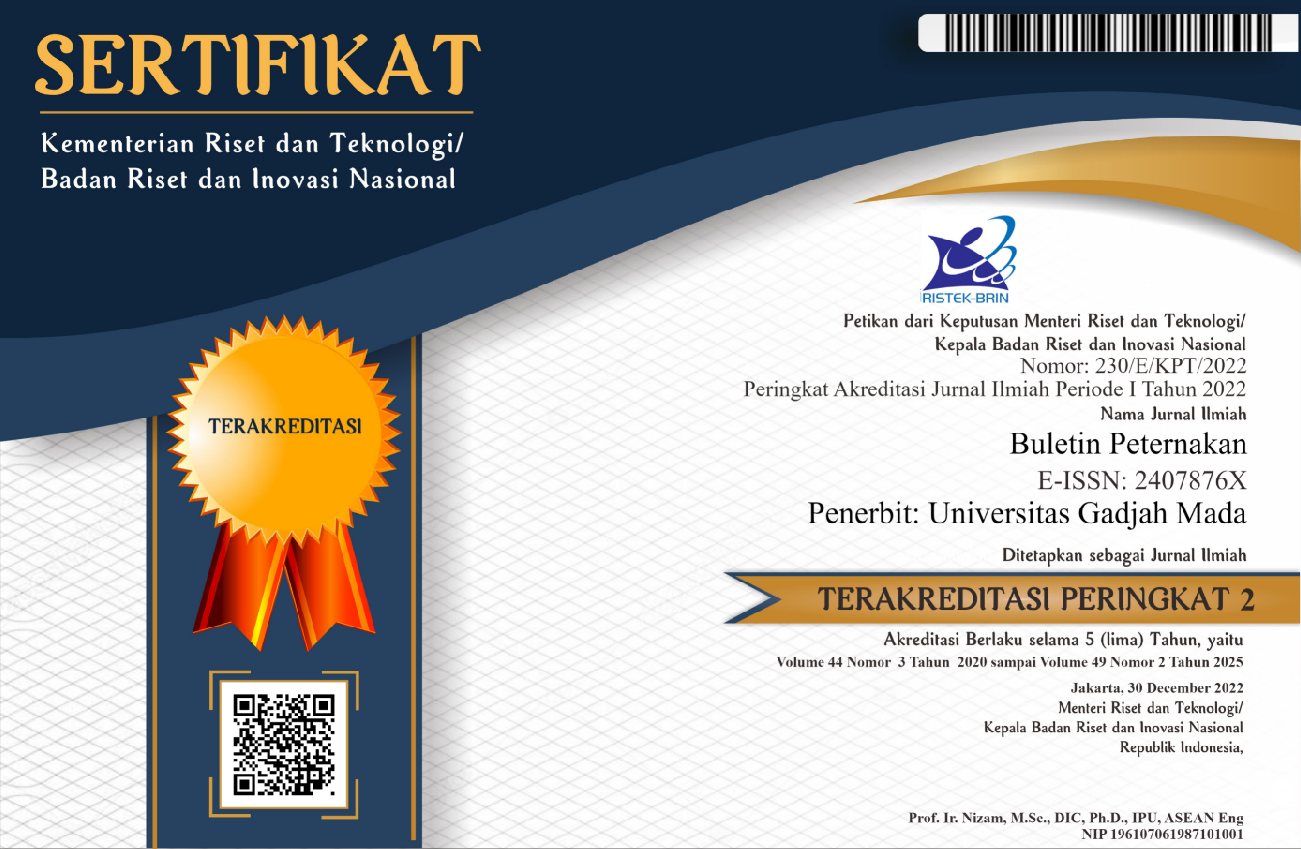PRODUKSI, KUALITAS, DAN KECERNAAN IN VITRO TANAMAN RUMPUT BENGGALA (Panicum maximum) PADA LAHAN SALIN
Endang Dwi Purbajanti(1*), R. Djoko Sutrisno(2), Eko Hanudin(3), Subur Priyono Sasmito Budhi(4)
(1)
(2)
(3)
(4)
(*) Corresponding Author
Abstract
The aim of this study was to evaluate performance and in vitro digestibility of Guinea grass grown on saline soil. Yield, quality, and in vitro digestibility of Guinea grass cultivated on coastal area with crop populations of 10,000,
20,000, and 30,000 plants per hectare. Experiment was conducted following randomized complete block design (RCBD). Higher crop population increased fresh and DM biomass production, crude protein (CP) yield, dry matter
(DM) content, neutral detergent fiber (NDF), lignin, and hemicellulose content, but decreased CP content, and in vitro organic matter digestibility (OMD). The increased population had no effect on acid detergent fiber (ADF) and in vitro
dry matter digestibility (DMD). It could be concluded that guinea grass was recommended to be planted in saline coastal area by addition of fertilizer 20 tons/ha manure, 3 tons/ha gypsum, and 50 kg N (239 kg ZA/ha) as source of
nitrogen.
(Keywords: Forage, Salinity, Saline soil, Manure, Gypsum, Nitrogen source)
Full Text:
PDFArticle Metrics
Refbacks
- There are currently no refbacks.
Buletin Peternakan (Bulletin of Animal Science) Indexed by:

This work is licensed under a Creative Commons Attribution-ShareAlike 4.0 International License.









